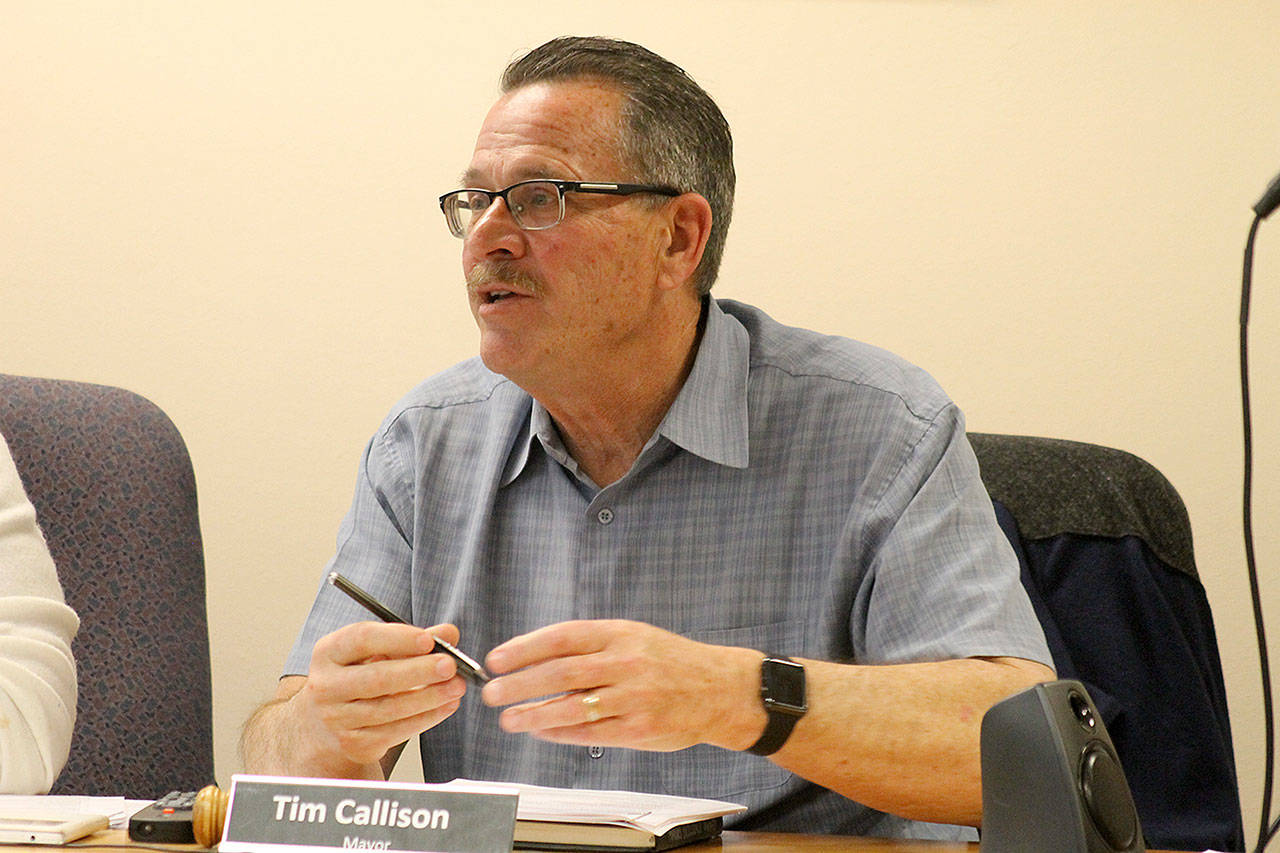The Langley Ethics and Training Advisory Board is reviewing Mayor Tim Callison’s decision to forward a bill to the South Whidbey Record for speaking with the city attorney.
The board is expected to issue an advisory opinion on the matter no later than next Wednesday, April 12, according to Bob Frause, chairman of the board. He declined to comment on the details of the review, but said that he expects the advisory opinion to be done on time.
“Essentially the first draft is being drafted now and we kind of know what direction we’re going to take,” Frause said.
He also said that whatever is found by the ethics board will not be punitive and that the board does not administer fines for violations.
“At the end of the day, all of our advisory opinions are educational in nature,” Frause said. “Basically, the mission is to try and help people understand what the right ethical practices are in regards to their dealings with the city. There’s no holding them accountable.”
“…We’ll call it the way we see it,” he added.
Callison declined to comment on the advisory opinion, but said that it is part of ethics board’s job to take requests for advisory opinion, provide them to the city council and publish them.
This is the second time this year that Callison is the subject of a ethics board review. The first was just completed, and examined the conduct of Callison and the Langley City Council at a Feb. 21 meeting. It was requested by Langley resident Eric Hood; he’s been critical of city hall in the past, suing the city at least twice over records requests.
The ethics board found that Callison’s conduct when he sparred with a Langley resident over not attending a community sanctuary city meeting during a public comment period was “inconsistent” with the city’s foundational aspirations but not unethical.
“Essentially, do a better job of conducting a meeting is what we we’re trying to suggest,” Frause said.
The opinion was made public at the council’s regular Monday meeting, April 5.
“I think it was a fair assessment,” said Callison, in a Tuesday morning interview with The Record.
He added that he apologized the same night for his “outburst” during a break. The ethics board noted Callison’s apology in its opinion, saying, “We acknowledge the actions of Mayor Callison for recognizing those inconsistencies and offering his apology at the above referenced meeting.”
The current advisory opinion was requested by Langley resident Sharon Emerson. She’s also a regular critic of city hall, and ran against Callison for mayor in the 2015 November General Election. In her request, Emerson asked the ethics board to determine whether Callison retaliated against the newspaper because of “unfavorable” coverage by first asking reporters not to contact him on his cell phone, and then days later sending the paper a $64 bill for time spent speaking with Mike Kenyon, Langley’s contracted city attorney.
She also questioned whether Callison’s actions violate Section 1.25.030 of the city’s ethics code revolving around stewardship, transparency and fairness. Emerson asserted that the mayor “failed to yield his own private interests to act wholeheartedly on behalf of the greater civic environment” and “did not support the goal of transparency in city government.”
Last month, Callison emailed The Record a bill for time spent with Kenyon, of Issaquah-based Kenyon Disend. He’s the city attorney but is a contract worker who bills the city by the hour. The city’s annual legal budget is $50,000.
In three exhanges with the paper, Callison said the attorney’s time is not free and that the paper would need to pick up the cost. After the story came out, he said the city couldn’t pay the tab because it would be a gift of public funds. The next day he said it was a misunderstanding and that he never intended to bill the paper. He added that he had arranged to have the bill waived.
Callison blamed the newspaper for not calling him after the bill was sent, giving him a chance to explain
According to emails provided to the newspaper in a recent records request, Kenyon was unaware that Callison did not intend to the bill the paper. Kenyon was cc’d in the bill emailed to the paper and within 10 minutes he responded to the mayor with an offer to waive the fee.
“If there is any resistance from Evan [the reporter] or his supervisor, please feel free to deduct that charge from the city’s payment of our bill,” Kenyon wrote.
He and the mayor traded several more emails, but Callison never clarified with Kenyon that it was just to get the paper’s attention; the conversation was limited to how the attorney should handle future media requests for information. Kenyon said he was willing to refuse future inquiries, and that he had no problem declining to answer certain questions on the basis of attorney client privilege. He added that it would be better, however, if he did field such calls and answer “in a general manner” to avoid the appearance of a city being “evasive.” That can result in a peppering of public records requests and other time consuming tasks, Kenyon added.
Callison’s final email to Kenyon said, “Ok. Do it your way. I get your reasoning on addressing but, not disclosing.”
In a later interview, Callison said the last email was his approval to waive the fee.
“It was agreed,” Callison said.
Frause said that once the ethics board’s opinion is crafted, it will be submitted to the Langley City Council for review, comment and acceptance.



